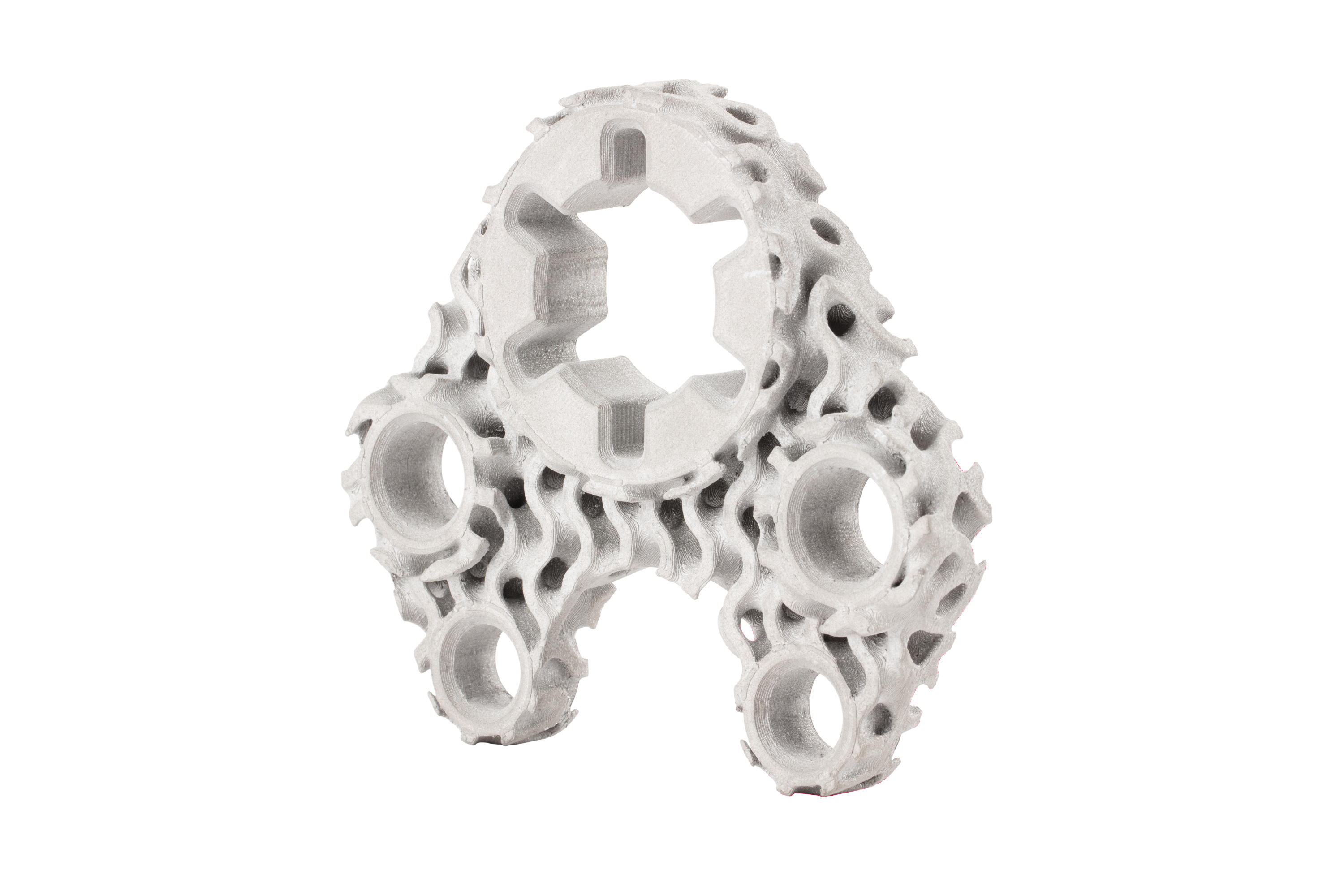
Desktop Metal has qualified the use of titanium alloy Ti-6Al-4V (Ti64) powder for its Studio System 2 3D printer.
According to the company, it is the first to make the material commercially available for extrusion-based bound metal additive manufacturing (AM) technologies.
Ti64 has a high strength-to-weight ratio and is suitable for production applications in industries such as aerospace and defense, automotive, and oil and gas. It is also biocompatible, making it of use in medical applications such as surgical devices and implants, Desktop said.
Parts made with the material using the Studio 2 reportedly have 730 MPa yield strength, 845 MPa ultimate tensile strength, and 17% elongation.
‘Titanium has been a challenging material for bound metal 3D printing because it is both extremely reactive in powder form and difficult to sinter,’ said Jonah Myerberg, CTO of Desktop Metal.
‘3D printing with titanium is incredibly valuable in industries like aerospace because of the material’s ability to support complex and lightweight designs,’ said Steve Wozniak, co-founder of Privateer Space, a new satellite company focused on monitoring and cleaning up objects in space. ‘With the Studio System 2, the team at Privateer Space will be able to achieve the affordability and lightweighting capabilities needed to pave the way for our satellite design and launch.’
This story uses material from Desktop Metal, with editorial changes made by Materials Today.





